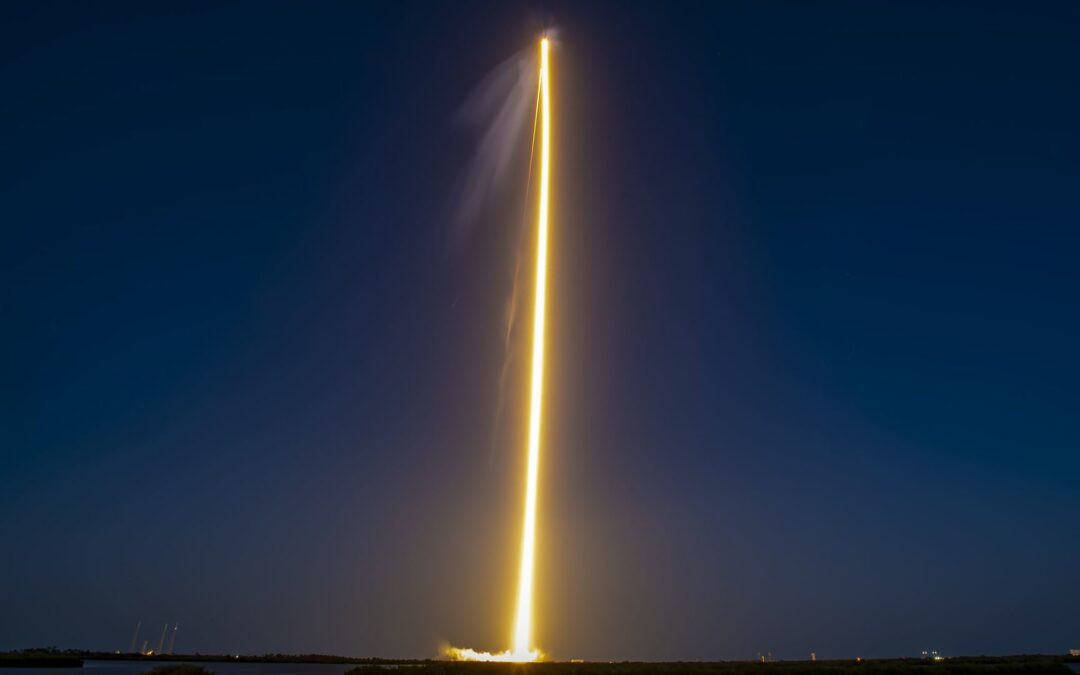A long-exposure photo shows a trail left by SpaceX’s Falcon Heavy rocket while launching the ViaSat-3 Americas satellite from Florida on April 30, 2023.
Viasat
Viasat shares rose on Thursday after the company said it expects to meet financial growth targets earlier than expected and that it won’t need to replace a damaged $750 million communications satellite.
While Viasat’s investigation into the root cause of the ViaSat-3 Americas satellite malfunction is still ongoing, the company said its current and imminent satellite fleet – as well as support from third parties – “will meet the current and future needs” of its key mobility market customers, despite the lost bandwidth.
The company “is well-positioned to achieve its financial growth objectives” despite the problem. Viasat expects to be free cash flow positive in the first half of 2025, earlier than the second half of 2025 it previously forecast.
Viasat stock jumped as much as 15% in premarket trading from its previous close of $15.63 a share.
Sign up here to receive weekly editions of CNBC’s Investing in Space newsletter.
The company in July disclosed the malfunction with the recently launched Viasat-3 Americas satellite, also known as “ViaSat-3 F1,” that occurred while deploying the reflector of the spacecraft’s antenna. On Thursday, Viasat said it “expects to recover less than 10% of the planned” communications capability of the satellite.
The company also expects to finalize a $420 million insurance claim on the ViaSat-3 Americas satellite before the end of the year, representing just over half of the company’s value.
Separately, Viasat on Thursday confirmed it plans to make a $348 million insurance claim before the end of the year for the I6 F2 backup satellite. The company in August reported that I6 F2’s power system malfunctioned.
Together, the pair of Viasat insurance claims total $768 million, which industry executives previously expected would roil the specialty space insurance market.









